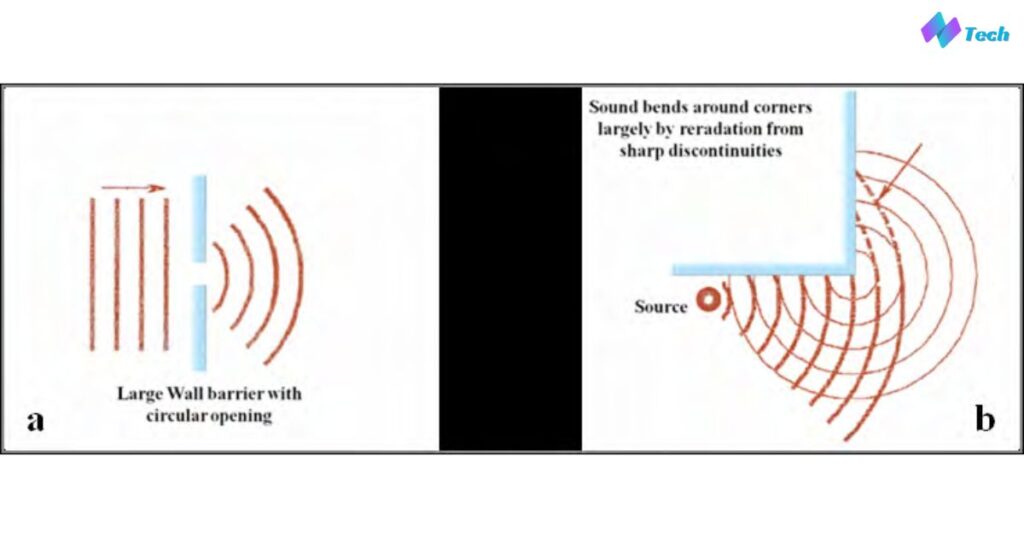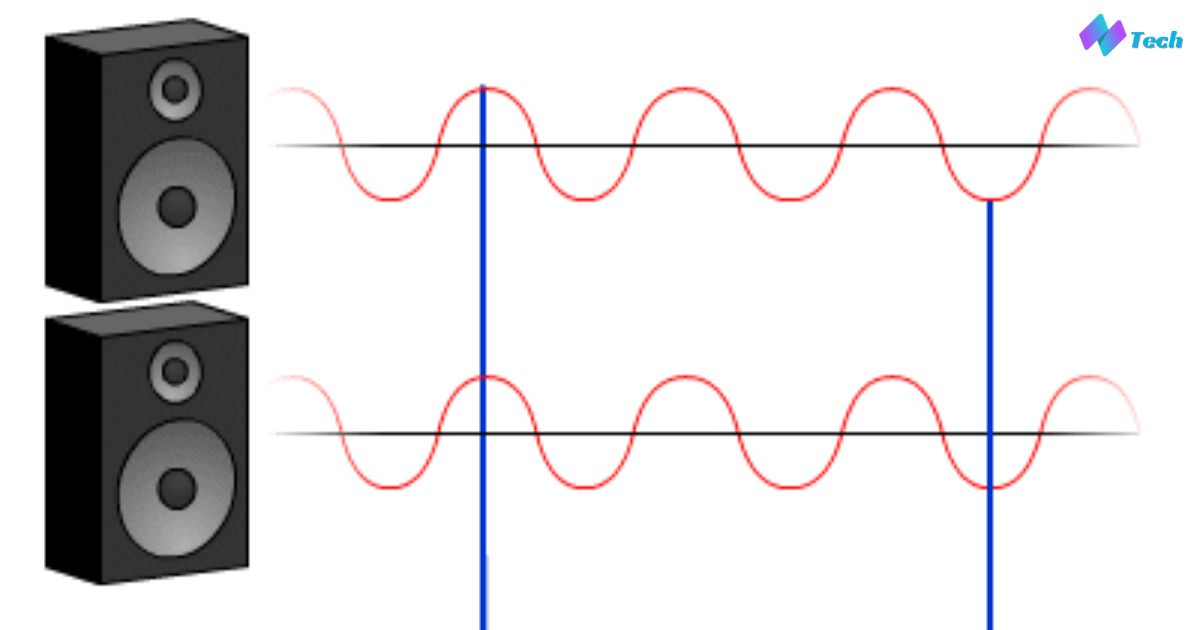When speakers sound muffled, the audio is unclear and lacks sharpness. This issue often results in a distorted or subdued quality in the sound produced. It can be caused by various factors, such as damaged speakers, poor connections, or audio settings misconfigurations.
The struggle is real when your audio sounds like it has taken a dip underwater. Ever experienced the frustration of muffled speakers? Muffled speakers can turn a music moment into a muted mystery, leaving you searching for the culprit behind the lost beats.
If your speakers sound muffled, check for any obstructions or debris in front of them. Clearing away any obstacles can often improve the clarity of the audio. Ensure that the speaker connections are secure and free from any loose cables for optimal sound quality.
Wiring Mistakes That Cause Muffled Sound
Speakers sound muffled when wiring mistakes are made during setup. One common error is improper speaker polarity, where positive and negative wires are reversed, leading to a loss in audio clarity.
Additionally, using low-quality or damaged cables can result in a muffled sound. Inadequate insulation and exposed wires may introduce interference, further degrading audio quality. Faulty connections, such as loose or poorly crimped terminals, can contribute to the issue.
Placing speakers too close to walls can also cause reflections and distortions, affecting sound clarity. Ensure proper speaker placement and check for any obstructions that may impede sound waves. Moreover, using the wrong gauge of wire for the speakers’ power requirements can impact performance.
Regularly inspecting and maintaining wiring connections is crucial for preventing muffled sound issues. Addressing these wiring concerns can significantly enhance the overall audio experience of your speakers.
Amplifier Issues: Settings and Configuration Mistakes
Amplifier issues, particularly settings and configuration mistakes can occur up to four times, leading to the persistent problem of “Speakers Sound Muffled.” Often, users overlook fundamental settings, such as volume levels, equalization, and input sources.
Incorrect adjustments or mismatched configurations may contribute to the muffled sound experience. It is crucial to double-check speaker connections, ensuring proper wiring and polarity. Additionally, amplifier impedance settings should align with the speakers to optimize performance.
In some cases, users mistakenly activate filters or processing modes that adversely affect audio clarity. Regularly inspecting and correcting these settings can greatly enhance the overall sound quality, preventing the frustrating issue of muffled speakers.
Obstructions That Affect Speaker Sound

Amplifier issues often lead to speakers sounding muffled, causing frustration for audio enthusiasts. The most common culprits are settings and configuration mistakes that compromise the overall sound quality.
It is crucial to check the amplifier settings meticulously to ensure optimal performance. In many cases, speakers sound muffled due to improper equalization settings or incorrect input/output configurations.
Addressing these issues promptly can significantly enhance the audio experience. If speakers sound muffled, users should first inspect amplifier connections and wiring, as loose or faulty connections can also contribute to the problem.
Regularly updating amplifier firmware and ensuring compatibility with audio sources can prevent unexpected issues. By paying attention to these details and troubleshooting effectively, users can restore clear and vibrant sound to their speakers, avoiding the frustration of muffled audio.
Why Your Speakers Crackle and How to Fix It?
If you have ever wondered why your speakers crackle, the culprit is often a simple issue that can be easily resolved. One common problem leading to this annoyance is loose connections or damaged cables.
Ensure all connections are secure and cables are in good condition. Additionally, dust and debris can accumulate in speaker components, causing distortion. Regularly cleaning your speakers can prevent this.
If you notice your speakers sound muffled, it could be due to audio settings or an issue with the speaker cone. Check your device’s audio settings and inspect the speaker cone for any visible damage. By addressing these concerns, you can enjoy clear and crisp sound without the frustration of crackling or muffled speakers.
Why do speakers pop and crackle?
- Loose connections between the audio source and the speakers can cause intermittent pops and crackles, disrupting sound quality. Ensure all cables are securely plugged in to minimize this issue.
- Over time, dust and debris can accumulate within the speaker components, leading to interference and crackling sounds. Regular cleaning can prevent this buildup and maintain clear audio output.
- Electrical interference from nearby electronic devices or power sources can affect speaker performance, causing pops and crackles. Keep speakers away from sources of electromagnetic interference to minimize disruptions.
- Aging speaker components, such as worn-out cables or damaged speaker cones, can contribute to crackling noises. Inspect these components regularly and replace them if necessary to maintain optimal sound quality.
- Impedance mismatch between the audio source and the speakers can lead to distorted sound and intermittent crackling. Ensure that the speakers are compatible with the output impedance of your audio device.
- Software or firmware issues within the audio device or amplifier can cause intermittent pops and crackles during playback. Update the software or firmware to the latest version to address potential compatibility issues.
- Sudden changes in audio volume or signal levels can cause speakers to pop or crackle, especially if the speakers are pushed beyond their recommended limits. Adjust the volume levels gradually to prevent audio distortion.
- Environmental factors such as humidity and temperature fluctuations can affect speaker performance, leading to crackling sounds. Maintain stable environmental conditions to minimize the impact on speaker quality.
- Poorly shielded cables or damaged wiring can introduce electrical noise into the audio signal, resulting in pops and crackles. Use high-quality, shielded cables and inspect them regularly for signs of wear or damage.
- Incorrect audio settings or equalizer configurations can cause speakers sound muffled or produce crackling noises. Adjust the audio settings on your device to optimize sound output and minimize distortion.
What about crackle on vinyl?
When it comes to vinyl, crackling sounds can be part of the charm, but excessive crackling might indicate an issue. Dust and static build-up on the record or the needle can contribute to unwanted crackling.
Ensure your vinyl and equipment are clean for optimal sound. If speakers sound muffled, it could be due to a worn-out stylus or dust in the grooves; a thorough cleaning or stylus replacement may enhance the audio quality. Remember, a gentle crackle can add character, but excessive noise might need some troubleshooting.
Where is that Crackling Coming from In Your Speaker?

loose connections or damaged cables are the culprits, causing disruptions in sound quality. Regularly check and secure all connections to prevent this issue. Wondering where that annoying crackling in your speakers is coming from?
Additionally, accumulated dust and debris within the speaker components can lead to crackling sounds; a simple cleaning routine can help maintain clear audio output.
If your speakers sound muffled, it might be due to issues with audio settings or damage to the speaker cone. Take a moment to inspect and adjust settings or replace damaged components for an optimal listening experience.
What If I Can’t Figure Out Where the Crackling is Coming From?
If your speakers sound muffled and there’s no apparent connection issue, consider checking for other common culprits. First, inspect the speaker cone for visible damage or wear as this can impact sound quality.
Additionally, ensure your audio source is functioning correctly, and try playing different audio sources to rule out device-related problems. Adjusting the equalizer settings on your device might also help eliminate muffled sounds.
If the issue persists, it could be due to outdated drivers; updating them can often resolve compatibility issues. Lastly, examine the speaker placement and surroundings, making sure they are not contributing to muffled audio. Troubleshooting these factors can bring clarity to your sound and eliminate the frustration of persistently muffled speakers.
Checking and Optimizing Audio Sources
| Aspect | Action |
| Audio Source Quality | Ensure that the audio source is high-quality, and free from compression or distortion that may make speakers sound muffled. |
| Device Compatibility | Check if your speakers are compatible with the audio source device, avoiding impedance mismatches that could lead to muffled sound. |
| Connection Stability | Confirm that all audio cables are securely connected to prevent interruptions that might cause speakers sound muffled. |
| Playback Settings | Adjust the playback settings on your device, focusing on equalization and balance to eliminate potential causes of muffled audio. |
| Testing Different Sources | Play audio from various sources to determine if the muffled sound is specific to one device or a general issue affecting all sources. |
Updating Speaker Drivers for Clear Sound
To ensure your speakers sound clear and vibrant, consider updating their drivers regularly. Speaker drivers are essential software components that facilitate communication between your operating system and the audio hardware.
Outdated drivers can lead to compatibility issues, causing speakers to sound muffled or distorted. Check the manufacturer’s website for the latest driver updates, and follow their instructions for installation.
This simple maintenance task can significantly enhance the overall performance of your speakers, delivering crisp and high-quality sound. By staying proactive with driver updates, you can address potential software-related problems and enjoy an optimal audio experience with your speakers.
FAQ’s
Why do my speakers sound muffled?
Muffled sound in speakers can result from various issues such as loose connections, damaged components, environmental factors, or problems with audio sources.
Could loose connections cause my speakers to sound muffled?
Yes, loose connections between your audio source and speakers can lead to intermittent sound issues, including muffled audio. Ensure all cables are securely plugged in.
What impact can damaged speaker components have on audio quality?
Damaged components, like a worn-out speaker cone or cables, can significantly affect audio quality, causing distortion and muffled sound.
How can I determine if the audio source is causing muffled sound in my speakers?
Test your speakers with different audio sources. If the issue persists across various sources, the problem may lie with the speakers.
Are there specific equalizer settings to address muffled audio in speakers?
Yes, adjusting the equalizer settings on your device can help optimize audio frequencies and eliminate muffled sound in speakers.
Can outdated speaker drivers contribute to muffled sound, and how do I update them?
Yes, outdated drivers may cause compatibility issues leading to muffled sound. Visit the manufacturer’s website to download and install the latest drivers.
What role does speaker placement play in preventing muffled sound?
Proper speaker placement is crucial. Ensure they are not obstructed and are positioned optimally to prevent reflections or interference that could cause muffled audio.
How do I troubleshoot muffled speakers if there is no visible damage?
Check for software-related issues, update drivers, inspect equalizer settings, and consider environmental factors that might affect audio quality.
Are there environmental factors that can affect how speakers sound?
Yes, factors like humidity, temperature, and surrounding materials can impact speaker performance, leading to muffled sound.
What steps can I take to optimize audio sources and eliminate muffled sound in my speakers?
Ensure high-quality audio sources, check compatibility, stabilize connections, adjust playback settings, and explore various sources to identify and address the root cause of muffled sound.
Conclusion
In conclusion, troubleshooting and addressing the issue of speakers sounding muffled involves a systematic approach. By checking for loose connections, inspecting speaker components, optimizing audio sources, adjusting equalizer settings, and keeping drivers updated, users can significantly enhance their audio experience. Additionally, environmental factors and proper speaker placement play vital roles in preventing muffled sound. Therefore, a combination of hardware and software considerations, along with periodic maintenance, is key to enjoying clear and crisp sound without the frustration of speakers sound muffled. Remember, staying proactive in identifying and resolving these issues ensures an optimal and immersive audio experience every time your speakers sound muffled.











